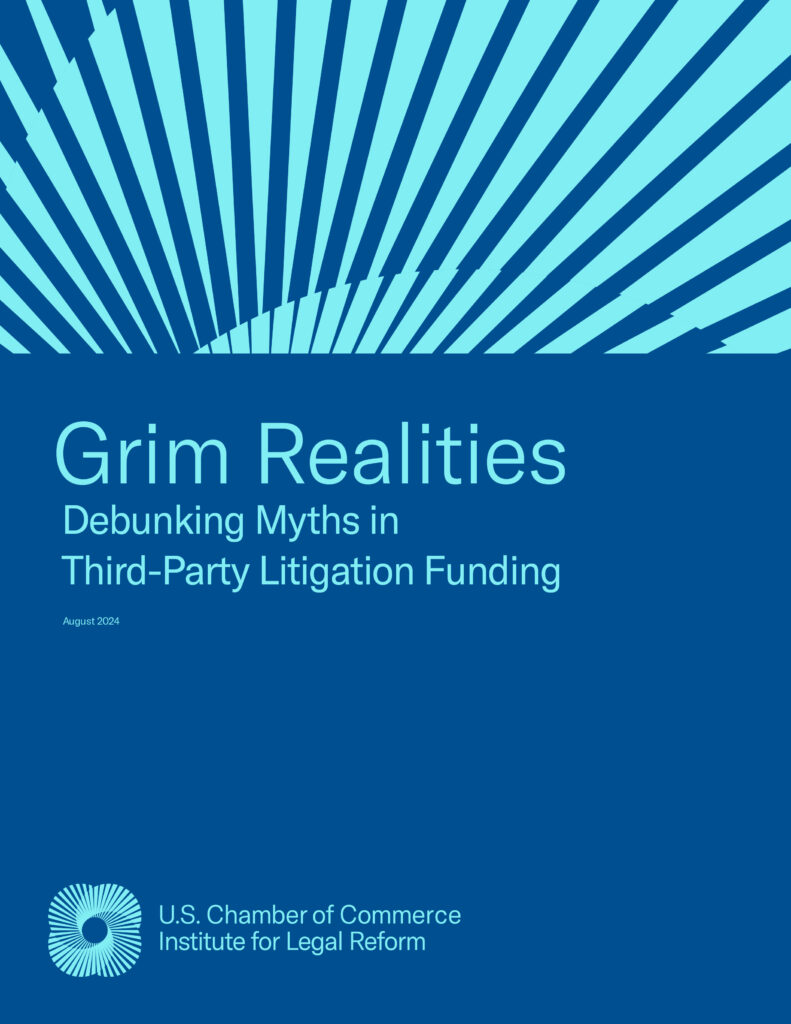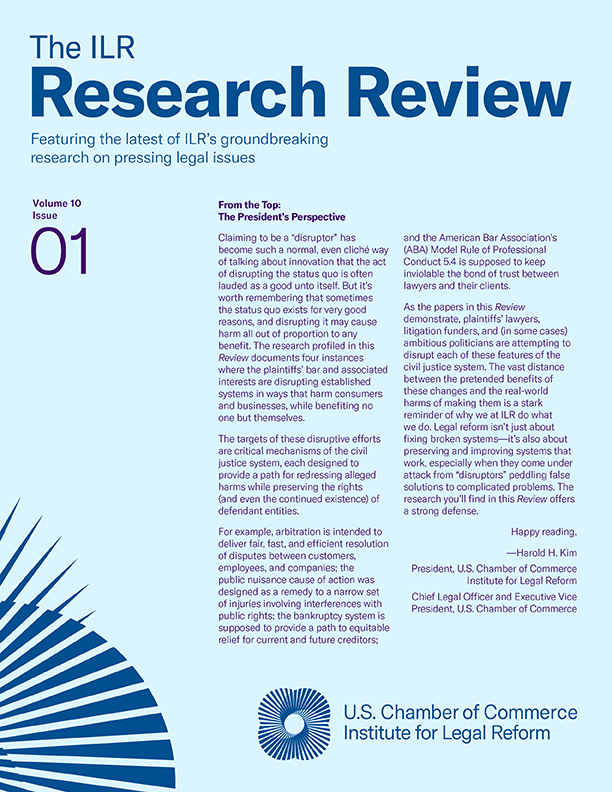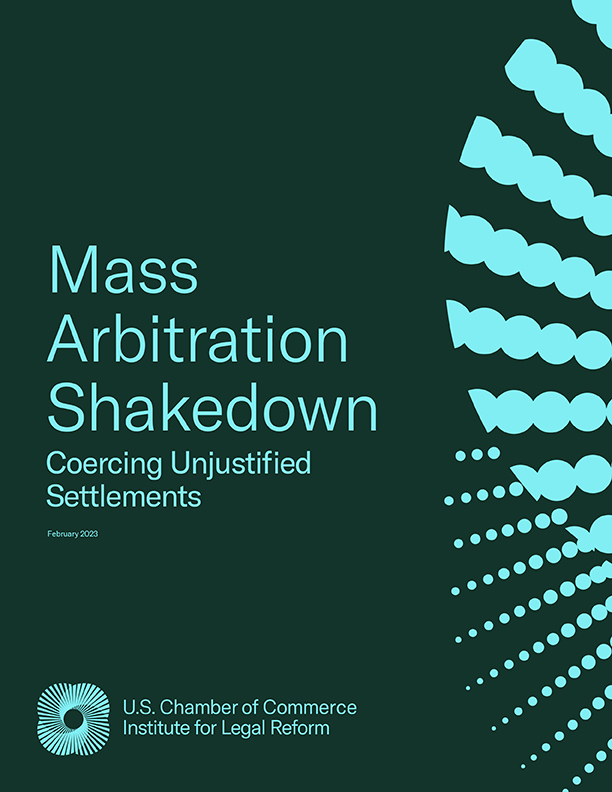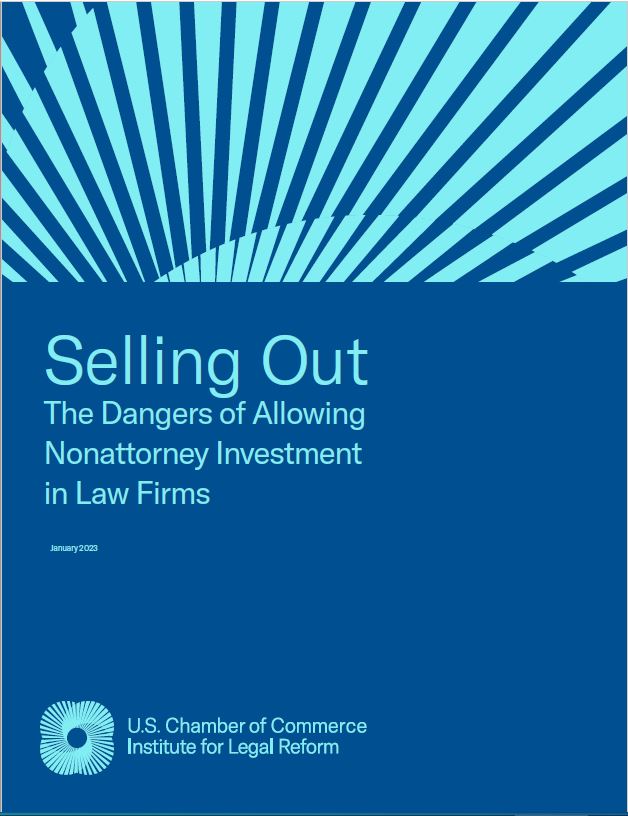The Winter 2020 edition of the ILR Research Review features research that examines some of the most important litigation trends on the rise today.
Front and center among these challenges are tort liability costs for small businesses. New ILR research by the same name shows that American small businesses paid $182 billion in tort liability costs in 2018—that’s more than half the total commercial tort liability cost for that year, even though small businesses make less than a fifth of the revenue.
A significant driver of litigation costs for all businesses is third party litigation funding, and new research shows that the practice is spreading into new areas. This edition of the Review includes ILR Briefly: Third Party Litigation Funding in False Claims Act Cases, which explores the issue of funders buying a share in the U.S. government’s recovery in qui tam False Claims Act cases—without disclosing their involvement to the government.
Businesses may face even more litigation risk in 2021, when it seems very likely that plaintiffs’ lawyer allies in Congress will resume their attacks on alternative dispute resolution, or arbitration. This Review also features Fairer, Faster, Better II: An Empirical Assessment of Consumer Arbitration, which shows that contrary to trial lawyer claims, consumers actually win more money, more often, more quickly in arbitration than they do in litigation. Combined with previous ILR research on employment arbitration, this paper serves as an important evidentiary argument in favor of preserving the practice.
Finally, trouble for the nascent artificial intelligence (AI) industry may be brewing in Europe, where the European Commission is considering a sweeping set of new AI liability rules that have the potential to stifle the industry before it can truly find its footing. ILR’s research examines the Commission’s evolving position, points to where it may be failing to strike the right balance between consumer protection concerns and supporting innovation, and recommends a set of guiding principles for the development of a truly future-oriented AI liability regime.



